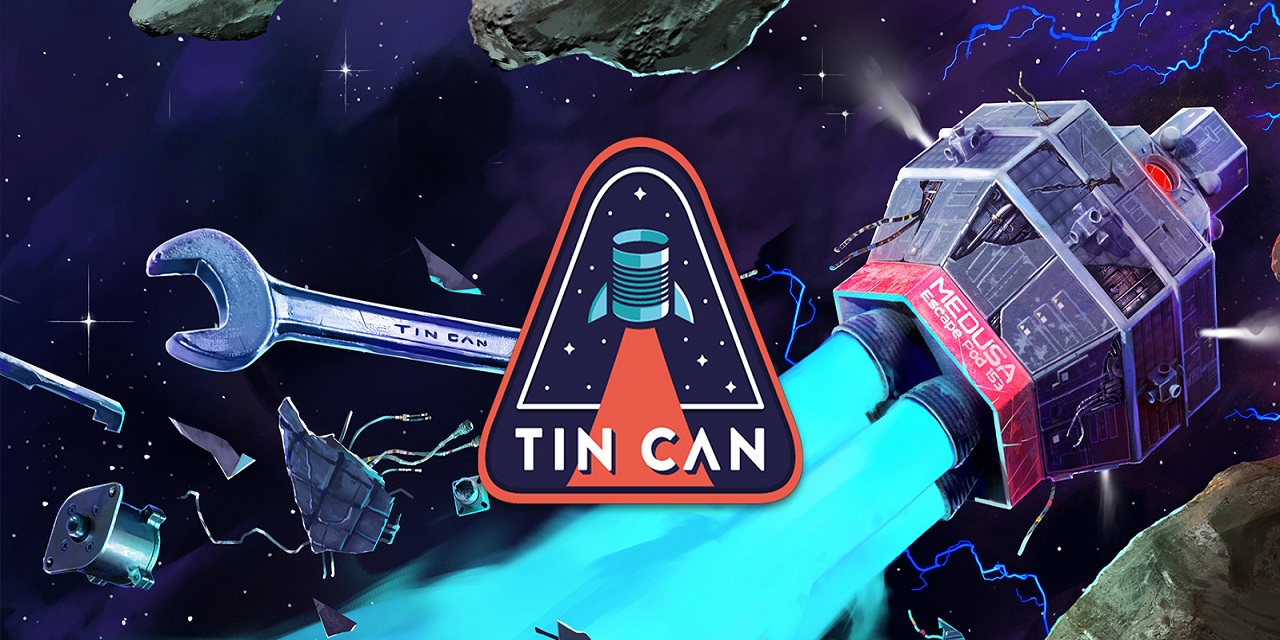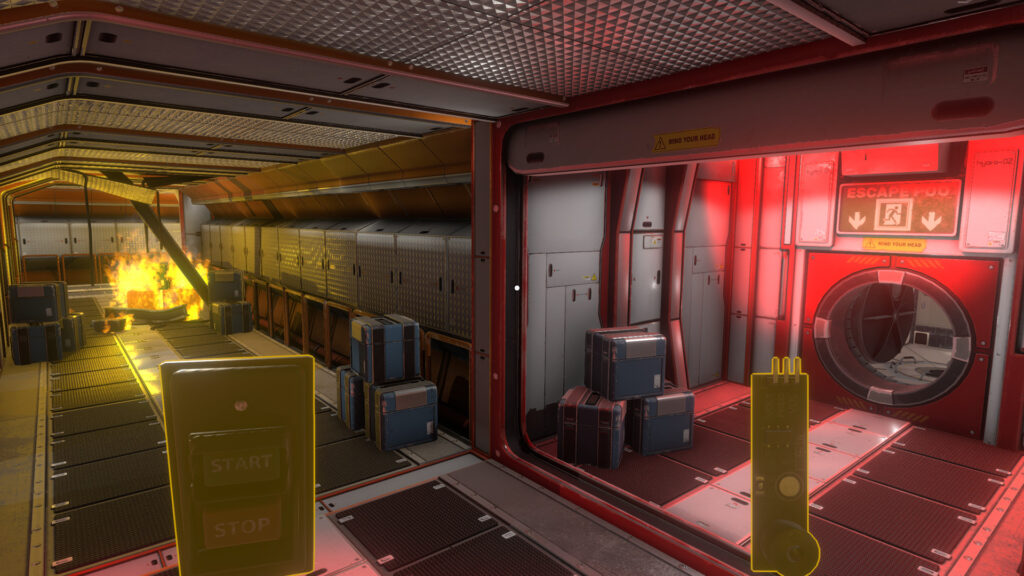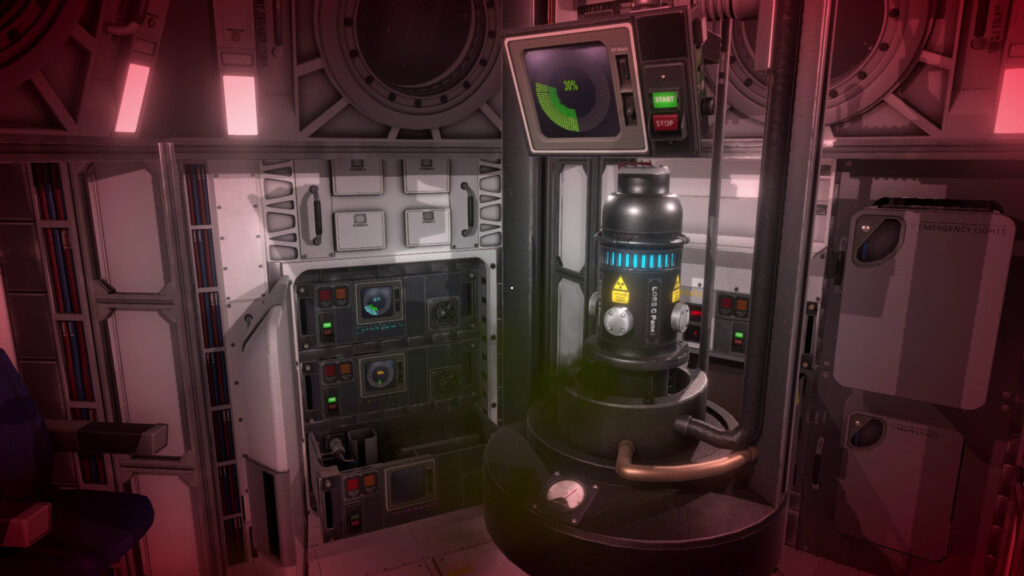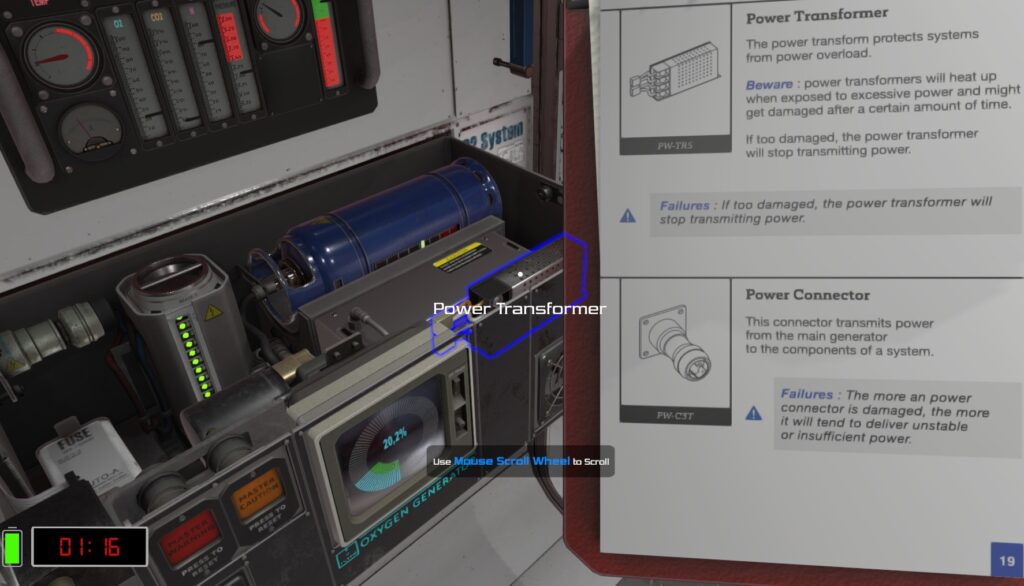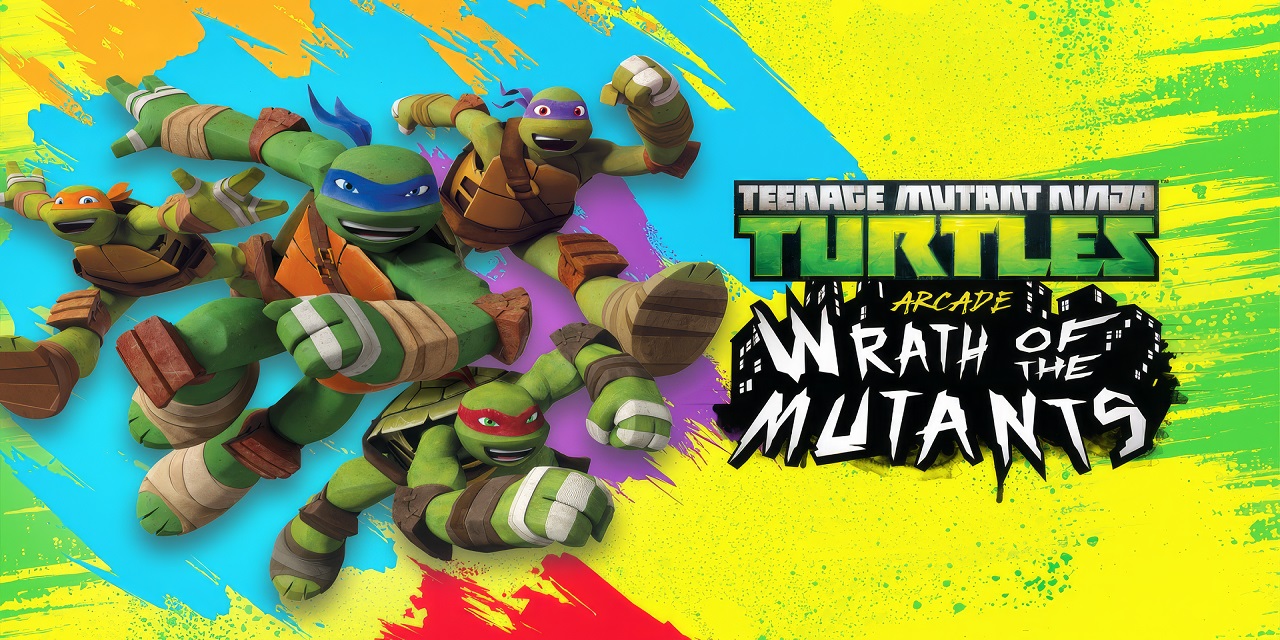Tin Can is a sci-fi escape pod survival simulator, developed by Tin Can Studio and published by Klabater, and launched on April 27, 2023, on PC, Xbox and PlayStation. It’s a game that tests your memory, patience and nerve as you need to survive as long as possible in an escape pod that will face random problems you must solve. From hull breaches, loss of oxygen or cabin pressure, to equipment malfunctions, you need to survive as long as you can where death is a learning experience.
As a member of your colony’s space program, you leave Mars aboard a large transport ship, only for its reactor to go critical in the middle of your journey to new horizons. Grabbing whatever you can get your hands on within 60 seconds, you must get into your pod and close the door to escape the exploding ship. I mentioned closing the door because just getting in the pod isn’t enough, as I found out the hard way. Once in the pod you are jettisoned off, drifting through space without any FTL capabilities, and must survive against whatever is thrown at you.
Before you get to this point there, there are four tutorial tasks that I highly recommend you complete, and I found I had to go back to the last two after a few failed attempts I had already forgotten some key elements in my panic to work out what was wrong. Within around 60 seconds of escaping in the pod, you will hit an asteroid field and hear rocks pinging off the outside of the pod. There are viewing bays to get glimpses of what’s happening around the pod.
I heard a loud bang and the pod was shaking, then the lights turned off. Switching on my torch I had a look at my instruments and they all looked fine. Oxygen – normal. Cabin pressure – normal. I couldn’t hear a hiss of oxygen escaping so there was no leak, but before long I started coughing and vision blurred for a moment. Looking at the oxygen screen again and oxygen was falling. I thought there must be a leak somewhere, so I grabbed the leak repair tool with one hand, and grabbed rails above me to look around.
Playing on the Xbox, I would use the left trigger to hold something my left hand, and right trigger for the right hand. Once you grab a railing, you can then pull yourself up to look at the roof of the pod. I couldn’t see any leaks, so I thought maybe the oxygen cylinder was empty. I switched off the oxygen generator, opened the drawer and grabbed the oxygen cylinder. My plan was to swap the cylinder for a fresh one, but I had forgotten how to do that even though I had just finished the tutorials.
I eventually worked it out, but by this time I was struggling to breath and vision getting blurrier. Just as I was about to replace the cylinder, I passed out and it was game over. You get a summary screen at the end of each run showing you stats like time survived, oxygen percentage, how you actually died, and a heap more info. You use this experience to better prepare for your next run, and thus the gameplay loop continues. There is also a global leaderboard to see how your survival rate compared to others.
There is no story campaign to follow, rather it’s about your will to overcome the challenges thrown at you and survive to the best of your ability. Cosmic events will strike your pod and will have different types of impact on its systems. From flying near the surface of a star that will cause overheating, to electric storms that could fry your instruments, you need to anticipate and deal with the situations as they come to avoid death.
It gets quite technical too as within each little compartment, for example the oxygen drawer, contains numerous parts like switches, buttons, pumps, filters, and so on. What you hastily grabbed in those first 60 seconds from your main ship then can be critical to your survivability. But then aside from the asteroid field, problems you face after that occur at random, so there’s no perfect list of things to grab in your panicked state.
There is a good sense of realistic survival and management of resources, so if you’re a sci-fi buff and love solving problems, this game will be great for you. I thought the tutorials did a great job at explaining simple problems, but when you’re facing random events and with the great sound design of your breathing or the master alarm blaring, it throws off your thought process just enough to unsettle you. At least it did for me, no matter how many runs I attempted.
While it can be a frustrating learning curve at first, you quickly get to know the fixed components in the pod and know what common parts you may want to grab in that hasty first minute. Controls on the Xbox were easy to use and you do have an instruction manual that you can refer to in the pod. It’s then a matter of how much time do you expend flicking through the book when your oxygen is running out, or the pressure is dropping, or electricity is sparking.
Given the quick nature of trying to survive each run, Tin Can is a game I enjoyed in small doses. There is good replayability in there’s no RPG elements, it’s just you and your increasing knowledge through learning from failed attempts. I enjoyed the realism offered with this ‘simplistic’ representation of surviving in a cramped escape pod as everything you need should be in front of you or in arms reach.
This review utilised a key provided by Klabater and Tun Can is out now on Steam, GOG, Xbox and PlayStation.
#roundtablecoop

